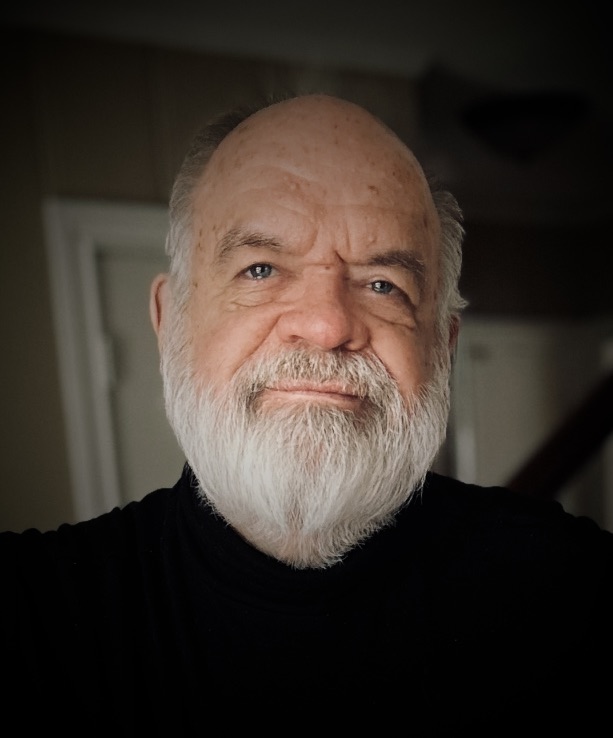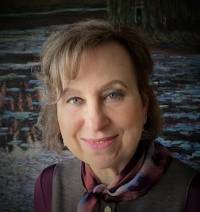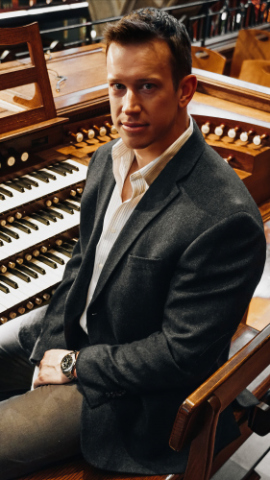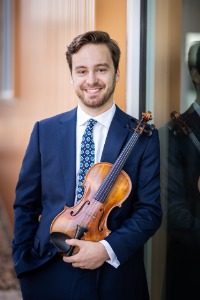- Search:
-
- Quicklinks:
Harpsichord Workshop
- All-State Choir Camp
- American Percussion Seminar
- Choral Conducting Symposium
- Conductors Collegium
- Contemporary Music Making
- Flute! Summer Masterclasses
- International Summer Music Institute
- Jazz Combo Workshop
- Lynn Seaton Jazz Double Bass Workshop
- Marching Percussion Camp
- Prelude at ISMI
- Summer Organ Academy
- Summer Piano Camp
- Suzuki Student Institute
- Suzuki Teacher Training
- UNT Blast
- Vocal Jazz Summer Workshop
- Vocal Jazz Educator Seminar
Harpsichord Workshop
July 21 - July 22, 2025About the Camp
Please join us for an exciting two-day workshop featuring renowned instrument builder
Keith Hill and esteemed pedagogue specializing in aural perception, Marianne Ploger.
In addition to hands-on training regarding the care and maintenance of harpsichords,
lecture discussions will delve into the development of keyboard instruments over the
past few centuries and the best ways to play them. Topics of musical communication
will also be explored, especially Johan Sebastian Bach's Cantabile style of playing, and the relationship of pitch, perception, and musical meaning will
be a particular focus. Each day will include a morning coaching session on Hill harpsichords
- so bring some repertoire to play! Each evening will conclude with a concert by Malcolm
Matthews.
This workshop is appropriate for all ages and experience levels.
Faculty
 Keith Richard Hill (born 1948) is a prize winning American maker of musical instruments. He has conducted
research into the acoustical technology employed by musical instrument makers from
1550–1850, and used this knowledge to create hundreds of harpsichords, clavichords,
fortepianos, and violins
Keith Richard Hill (born 1948) is a prize winning American maker of musical instruments. He has conducted
research into the acoustical technology employed by musical instrument makers from
1550–1850, and used this knowledge to create hundreds of harpsichords, clavichords,
fortepianos, and violins
Early life and education
Hill was born in China to missionary parents, and raised in the Philippines. He moved to the United States permanently in 1962. He attended music school at Michigan State University, studying piano and carillon with Wendell Westcott, organ with Corliss Arnold, and piano tuning and historical temperaments with Owen Jorgensen. He graduated with a Bachelor of Music in music history from Western Michigan University in 1971.
Hill became interested in making harpsichords while a student at Michigan State and built his first instrument there. He worked briefly making harpsichords for Rainer Schutze in Heidelberg, Germany and then for E.O. Witt in Three Rivers, Michigan before studying harpsichord performance with Anneke Uittenbosch at the Sweelinck Conservatory in Amsterdam, the Netherlands. He traveled around Europe and England making measurements of more than 150 antique harpsichords, fortepianos, clavichords, and virginals.
Career
In 1972 Hill opened a workshop in Grand Rapids, Michigan. Initially working alone,
he made on average 8 double-manual harpsichords each year. As interest in his instruments
grew, Hill began to work with apprentices, some of whom later went on to become independent
builders. During the early and mid-1980s Hill began extensive research into the acoustical
technology of musical instrument makers from the Renaissance, Baroque, and Classical
periods. Beginning in 1988, harpsichord production was moved to Manchester, Michigan.
In 1980 Hill designed and built a pedal harpsichord; the instrument was shown at the Boston Early Music Festival in the early 1980s. It is now the standard design copied by other instrument makers all over the world. In 2004 he performed an acoustical restoration of the 1658 Girolamo de Zentis harpsichord, originally part of the collection at the New York Metropolitan Museum of Art.
Hill wrote articles about instrument making for Continuo: The Magazine of Old Music,. including "The Anatomy of Authenticity" (1985) and "How to Judge a Harpsichord" (1985). In October 1987 Hill was Continuo's featured artist. Another article was titled "Plastic versus Quill" (Continuo, 1993).
After researching tanning methods and techniques for the making of hammer leather suitable for use on fortepianos, Hill developed a custom hammer leather.
Hill began making violins and studying violin varnish in 1978. After five years of experimentation, he developed a varnish made from wood ashes, water (to convert the ash to lye), linseed oil, and rosin. In 1994 he published his findings in an article in the Guild of American Luthiers Journal (#37) titled: "Ash Violin Varnish." Further research in 2012-13 led Hill to refine the varnish formula currently in use.
Later Hill compiled his knowledge into thirteen acoustical principles, creating a lengthy document, Treatise on the True Art of Making Musical Instruments—a Practical Guide to the Forgotten Craft of Enhancing Sound. This work has been published. It is used as the text for his Acoustical Technology Training program.
Hill has conducted his various researches in partnership with his wife, Marianne Ploger (Professor of Music Perception and Cognition at Vanderbilt University) and with Matthew Lammers DMA (Violin at Rice University, Co-Founder and Co-Director, Opus 1 Chamber Music School, Instructor of Chamber Music and Preparatory Violin Faculty, Shepherd School of Music, Rice University, Violinist, The Axiom Quartet), and his brother, Robert Hill (Director of the Early Music Program at the Hochschule für Musik Freiburg in Germany). Hill and Ploger jointly re-wrote and revised an earlier article, "On Affect." They have collaborated in presenting a series of workshops on the craft of musical communication at conservatories and schools of music in Europe and the United States.
Hill maintains a violin and keyboard instrument making workshop in Nashville, Tennessee.
Instruments built
Hill's production of musical instruments, known throughout the world, include 199
Double-manual Harpsichords (of which 6 are 16’ harpsichords), 143 Violins, 71 Single-manual
Harpsichords, 9 Lautenwerks, 49 Clavichords, 39 Violas da Gamba, 22 Spinets, 19 Fortepianos,
11 Pedal Harpsichords, 8 Guitars, 10 Violas, 9 Cellos, and smaller numbers of various
other heritage instruments.
Publications
• "The Craft of Musical Communication," Japanese Clavichord Society Journal (1996)
• "Area Tuning the Violin," Guild of American Luthiers Journal
• "Hints to Area Tuning the Violin," Guild of American Luthiers Journal (Vol. 1 #1)
• "The Dynamics of Viol Making," "Early Music" Jan. 1980 (vol. 8, n1), p. 77.
• "Ash Varnish: A Modern Alchemist's Recipe for Violin Varnish with all the Defects
of 17th-century Italian Varnish," American Lutherie, (Spring 1994, n37), pp. 44-48.
• "Play from the Soul, an Artist's Science for Creativity," Philagnosis Press (2018)
• "Treatise on the True Art of Making Musical Instruments: A Practical Guide to the
Hidden Craft of Enhancing Sound," Philagnosis Press (2018)
 For over 45 years, Marianne Ploger has been teaching countless music lovers of all ages, interests, and aptitudes to
develop a more fluent musical mind and ear. Influenced by her studies with famed pedagogue
Nadia Boulanger, she has learned that, when the conscious mind knows what is supposed
to do, it effortlessly syncs with normal aural perceptions. Following her studies
in Paris and the completion of her MM in Piano Performance from the University of
Michigan in 1980, Marianne began to teach musicians aural skills on a private basis
from her studio in Ann Arbor, Michigan, where her interest in neurology, psychology,
perception, and cognition led to her original observations involving the aural recognition
of musical intervals and pitches in real time. Her, students, whether composers, conductors,
performers, and/or teachers, continue to be leaders in their respective fields, many
receiving major awards.
For over 45 years, Marianne Ploger has been teaching countless music lovers of all ages, interests, and aptitudes to
develop a more fluent musical mind and ear. Influenced by her studies with famed pedagogue
Nadia Boulanger, she has learned that, when the conscious mind knows what is supposed
to do, it effortlessly syncs with normal aural perceptions. Following her studies
in Paris and the completion of her MM in Piano Performance from the University of
Michigan in 1980, Marianne began to teach musicians aural skills on a private basis
from her studio in Ann Arbor, Michigan, where her interest in neurology, psychology,
perception, and cognition led to her original observations involving the aural recognition
of musical intervals and pitches in real time. Her, students, whether composers, conductors,
performers, and/or teachers, continue to be leaders in their respective fields, many
receiving major awards.
In addition to her studio teaching, Marianne taught advanced aural skills for the graduate conducting program at the University of Michigan School of Music (1996-2008) and thereafter became the Director of the Musicianship Program at Vanderbilt University Blair School of Music (2009-2021) where her methods were a core requirement for all music majors. In 2018 she was presented with the Hall of Fame Award by the Alumni Association of the University of Michigan School of Music, Theatre, and Dance (UMSTD) for her contributions to music education.
A sought-after clinician, Marianne offers presentations and workshops at conferences and workshops throughout the United States, Europe, and Central America, sharing her functional insights into music perception and cognition. She continues to teach musicians from her home in Nashville where she lives with husband Keith Hill who is also her co-author and collaborator on their monograph The Craft of Musical Communication. Her Musical Communication Podcast can be heard on any major platform, and her book The Ploger Method: Crafting a Fluent Musical Mind can be purchased on Amazon. You can find more about Marianne at www.theplogermethod.com.

Malcolm Matthews, who earned a doctoral degree in organ performance from the Eastman School of Music, is one of only four organists to have been awarded the prestigious Artist's Certificate in Eastman's century-long history. In addition to his organ studies with David Higgs, he earned a master's degree in harpsichord performance under William Porter and pursued a minor in collaborative piano with Jean Barr.
Dr. Matthews comes to UNT most recently from the faculty of the Blair School of Music at Vanderbilt University in Nashville, Tennesee where he served as Adjunct Artist Teacher of Organ and Harpsichord. He also served as associate organist and choirmaster at Christ Church Cathedral in Nashville. Matthews enjoys collaborative work and often accompanies ensembles and soloists across a broad repertoire. He has performed as a soloist with the Oak Ridge Symphony Orchestra, Knoxville Symphony Orchestra, and Rochester Philharmonic Orchestra. A featured artist at national conventions of the American Guild of Organists and the Organ Historical Society, his accolades include first place at the 2013 Westfield International Organ Competition, second place at the 2012 National Young Artist's Competition in Organ Performance, semi-finalist at the 2016 International Bach Competition, second place at the 2016 OSM Manulife Competition, first place at the 2005 Southeastern Region IV Young Organists Competition and semi-finalist at the 2009 Concours international d’orgue de Lyon.
 Violinist, Matt Lammers is a member of the American Prize-winning Axiom Quartet and the Mercury Chamber Orchestra.
He is an Instructor of Violin and Chamber Music at the Shepherd School of Music (Rice
University), where he is also on the Preparatory Violin Faculty. In addition to coaching
chamber music at the Shepherd School, he is a Founder and Director of the Opus 1 Chamber Music School, Houston’s pre-college
chamber music, music theory, masterclass, and community outreach training program.
Violinist, Matt Lammers is a member of the American Prize-winning Axiom Quartet and the Mercury Chamber Orchestra.
He is an Instructor of Violin and Chamber Music at the Shepherd School of Music (Rice
University), where he is also on the Preparatory Violin Faculty. In addition to coaching
chamber music at the Shepherd School, he is a Founder and Director of the Opus 1 Chamber Music School, Houston’s pre-college
chamber music, music theory, masterclass, and community outreach training program.
Now in its eleventh year and as Texas Touring Artists, the Axiom Quartet have given critically acclaimed performances and premieres across the U.S. and abroad. Their concert series’ in Houston attract a wide variety of audiences, known for their creative programming that combines traditional, undiscovered, and under-represented quartet repertoire from a variety of genres through multi-disciplinary storytelling and conversation. Matt appears regularly with the Mercury Chamber Orchestra, specializing in contemporary and historical repertoire on period-appropriate instruments. He is also a Core Member of the Grammy-nominated and National Endowment for the Arts recipient Kinetic Ensemble, recognized as one of the nation’s most adventurous conductor-less chamber orchestras. He has performed and taught chamber music alongside members of the Miro, Concord, St. Lawrence, Carpe Diem, and Artaria Quartets, the St. Paul Chamber, Nashville, and Cleveland Orchestras, and soloists including Jinjoo Cho, Cho-Liang Lin, Wolfgang Rubsam, and Andres Diaz.
In 2019, Matt was awarded the City of Houston’s generous Support for Artists and Creative Individuals Grant for commissioning, producing, and performing Michael Alec Rose's chamber opera-ballet Lolly Willowes. Invested in historical performance as well as new music, he has published solo violin transcriptions of Lute Sonatas by Sylvius Leopold Weiss, as well as J.S. Bach’s D-minor Toccata and Fugue, proposing that it was composed for solo string instrument. The subject of his dissertation, A String Player’s Guide to Evaluating Sound and Playability, Matt also explores the effects of acoustical construction on the characteristics of violins with research partner and luthier Keith Hill.
Matt holds degrees from Vanderbilt University and Rice University, where he earned his DMA as the Itzhak Perlman Fellow. His primary teachers include Paul Kantor, Carolyn Huebl, and Christian Teal.
Tuition & Fees
- $30 - Registration Fee
- $99 - Cost per Day (includes daily lunch)
- $10 - Parking Permit (optional)
Participants are responsible for securing their own housing, breakfast, and dinner.
Registration Information
To register, visit https://app.getacceptd.com/untmusicworkshops. Begin by selecting your Area (Keyboard) and Program (Harpsichord Workshop). For technical questions, please visit the Acceptd Help Desk.
Registration Deadline
- July 10, 2025
Registration Policy
- The registration fee, full tuition, and parking fees (optional) are due at the time of registration.
Refund Policy
- Requested by June 1, 2025 – Full refund less $55 ($30 registration fee + $25 administrative fee)
- Requested by July 1, 2025 – Full refund less $80 ($30 registration fee + $50 administrative fee)
Workshop Schedule
Monday
| 9:00am - 12:00pm |
The Standard Model: Modern Performance Practice vs. Early Music (Informed) Performance Practice Solving the Mystery of Bach's Cantabile Style of Playing The Craft of Musical Communication: 6 Techniques Explained from a Cognitive Point of View Musical Meaning: Affect Learning the Cantabile Style of Playing: Coaching Session (2hrs) |
| 12:00pm - 1:00pm | Lunch |
| 1:00pm - 4:00pm |
The Art of Voicing as Applied to Harpsichords, Clavichords, Fortepianos, and Organs The Natural Touch for Playing the Harpsichord or Fortepiano Why Bach insisted on Tuning and Maintaining his Harpsichord Himself |
| 4:00pm - 5:00pm | Continuo Introduction and Workshop with Malcolm Matthews |
| 7:00pm |
Faculty Recital: Malcolm Matthews, lautenwerk & Matthew Lammers, violin |
Tuesday
| 9:00am - 12:00pm |
The Secret Behind Perfect Pitch Perception Understanding Musical Meaning: Why Relative Pitch Perception is Essential Modern Pitch and Historical Pitch Affect Musical Meaning Learning the Cantabile Style of Playing: Coaching Session (2hrs) |
| 12:00pm - 1:00pm | Lunch |
| 1:00pm - 5:00pm |
Everything You Wanted to Know About Acoustics of Harpsichords, Violins, Organs, etc. Are Historical Temperaments Essential to Musical Meaning? Deciding to Buy a Harpsichord or Fortepiano? What You Need to Know About Voicing and Regulating Harpsichords to Enhance Musical Meaning A No-Fear Method for Voicing Harpsichords - Hands on Training |
| 7:00pm | Faculty Recital: Malcolm Matthews, harpsichord |
Additional questions? Please contact us at music.camps@unt.edu or call (940) 369-6541.
For technical questions, please visit the Acceptd Help Desk.